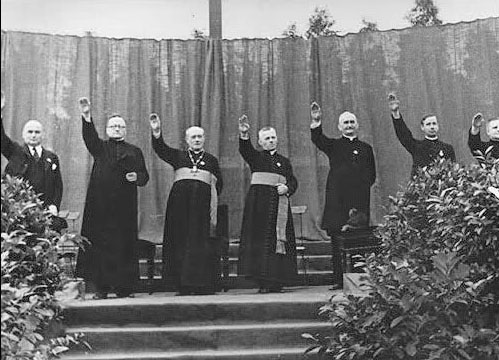Jeremiah Ames
Well-Known Member
I want to get some opinions on a matter which has bothered me a bit.
The bother is because there seems to be an illogical conclusion regarding the crusades which many people assume to be true.
I'd actually prefer to see thoughtful responses from non-Christians, but, of course, any discussion is welcomed.
So here I go.
"The four canonical gospels (Matthew, Mark, Luke, and John) are the only substantial sources for the life and message of Jesus."
That is from Wikipedia. These books describe the character of Jesus, as well as many things that he spoke and did. It is not necessary to believe in the gospels or even in Jesus to answer my question. Just know that Christians do believe in them. I think this is a fact that should not be disputed.
I think Christians would agree that the character traits of Jesus include but are not limited to the following:
Love, joy, peace, patience, friendship, humility, kindness, goodness, gentleness, forgiveness, compassionate, and more.
Christians would also agree that He would not be violent, hateful, unforgiving, unkind, etc. Also, He would be considered a pacifist, not a warrior. Ok, you got my point. Again, you don't have to believe that Jesus had the character traits I mentioned, you only need to believe that Christians believe it.
Theses verses from Matthew 7 are some of my favorites.
15 “Beware of false prophets, who come to you in sheep’s clothing, but inwardly they are ravenous wolves. 16 You will know them by their fruits. Do men gather grapes from thornbushes or figs from thistles? 17 Even so, every good tree bears good fruit, but a bad tree bears bad fruit. 18 A good tree cannot bear bad fruit, nor can a bad tree bear good fruit.19 Every tree that does not bear good fruit is cut down and thrown into the fire. 20 Therefore by their fruits you will know them.
When people say they are something, I remember the above and weigh whether their actions affirm their words.
Now for my question:
Understanding what Christians believe and how true Christians aspire to be Christlike, is it logical to conclude that a true (in their heart) Christian would participate in the Crusades?
The bother is because there seems to be an illogical conclusion regarding the crusades which many people assume to be true.
I'd actually prefer to see thoughtful responses from non-Christians, but, of course, any discussion is welcomed.
So here I go.
"The four canonical gospels (Matthew, Mark, Luke, and John) are the only substantial sources for the life and message of Jesus."
That is from Wikipedia. These books describe the character of Jesus, as well as many things that he spoke and did. It is not necessary to believe in the gospels or even in Jesus to answer my question. Just know that Christians do believe in them. I think this is a fact that should not be disputed.
I think Christians would agree that the character traits of Jesus include but are not limited to the following:
Love, joy, peace, patience, friendship, humility, kindness, goodness, gentleness, forgiveness, compassionate, and more.
Christians would also agree that He would not be violent, hateful, unforgiving, unkind, etc. Also, He would be considered a pacifist, not a warrior. Ok, you got my point. Again, you don't have to believe that Jesus had the character traits I mentioned, you only need to believe that Christians believe it.
Theses verses from Matthew 7 are some of my favorites.
15 “Beware of false prophets, who come to you in sheep’s clothing, but inwardly they are ravenous wolves. 16 You will know them by their fruits. Do men gather grapes from thornbushes or figs from thistles? 17 Even so, every good tree bears good fruit, but a bad tree bears bad fruit. 18 A good tree cannot bear bad fruit, nor can a bad tree bear good fruit.19 Every tree that does not bear good fruit is cut down and thrown into the fire. 20 Therefore by their fruits you will know them.
When people say they are something, I remember the above and weigh whether their actions affirm their words.
Now for my question:
Understanding what Christians believe and how true Christians aspire to be Christlike, is it logical to conclude that a true (in their heart) Christian would participate in the Crusades?

